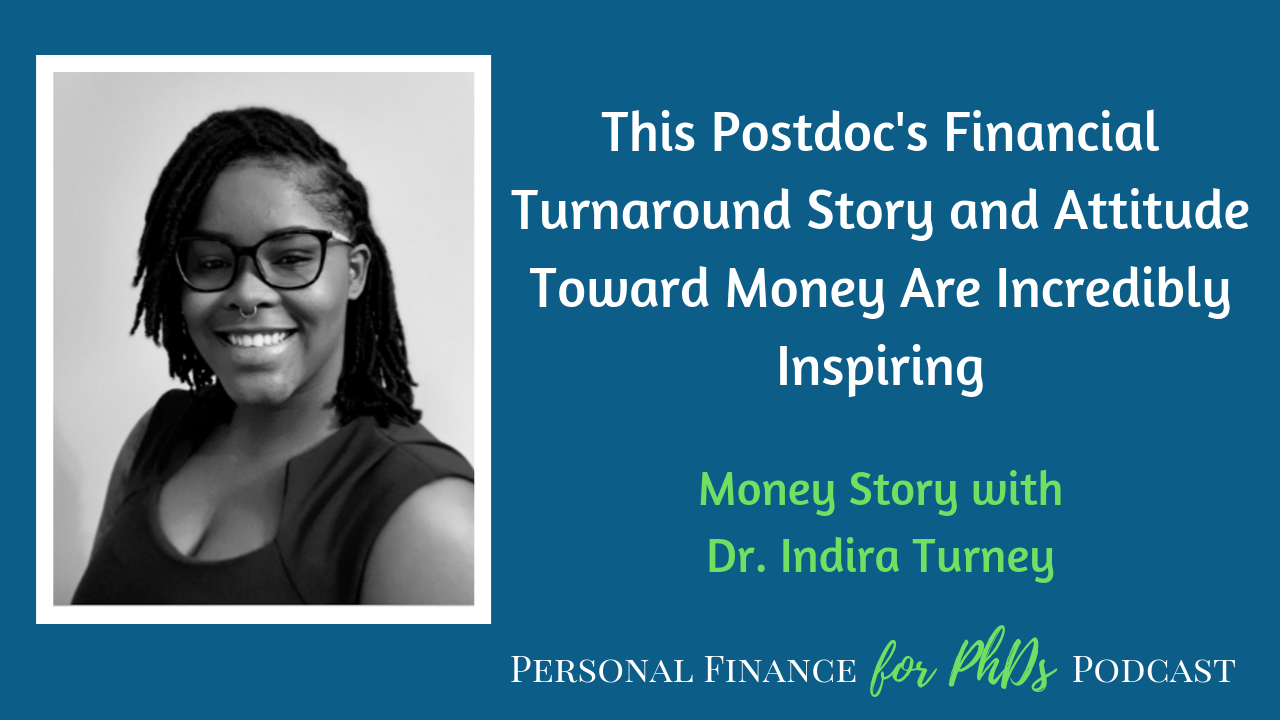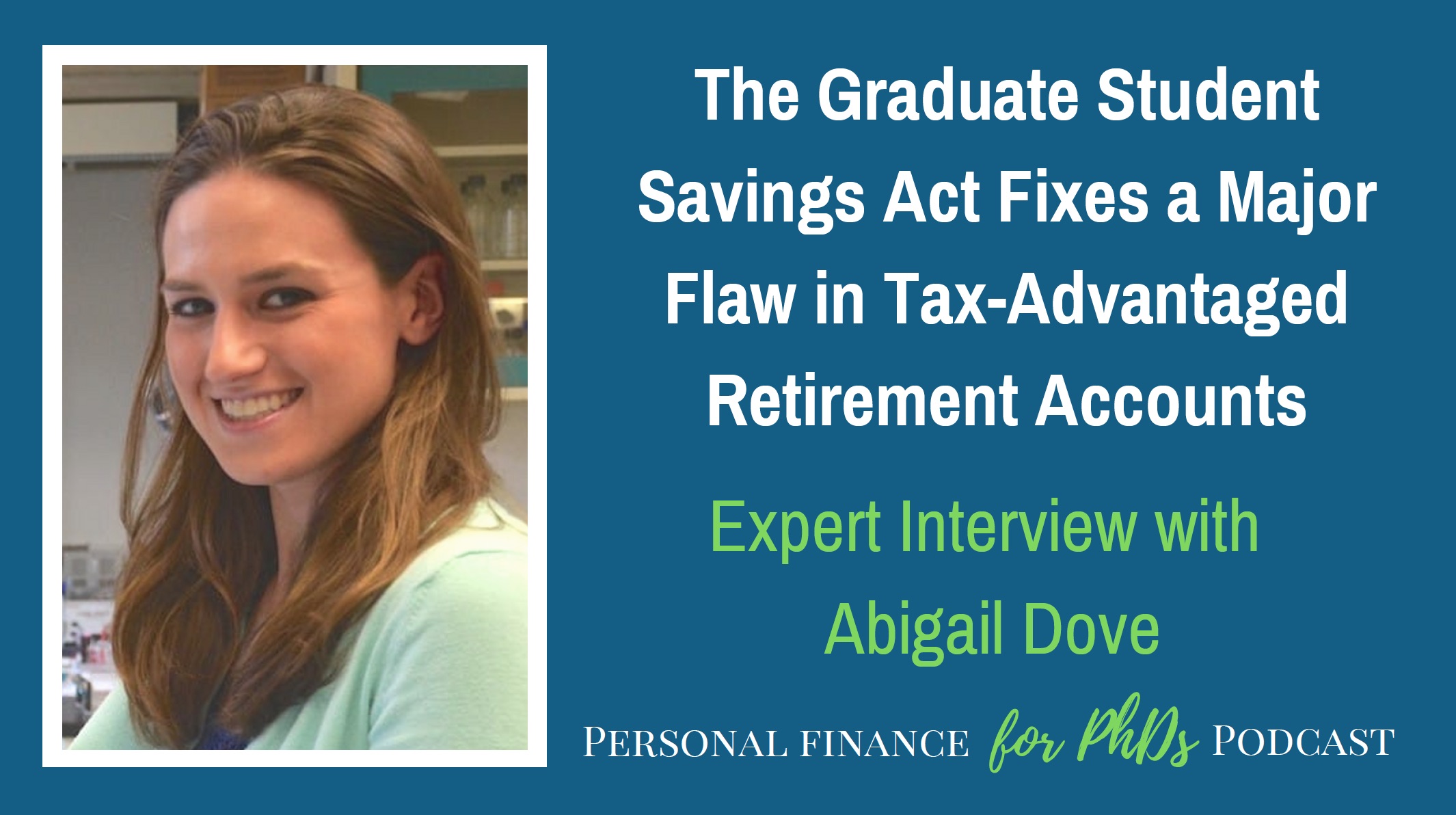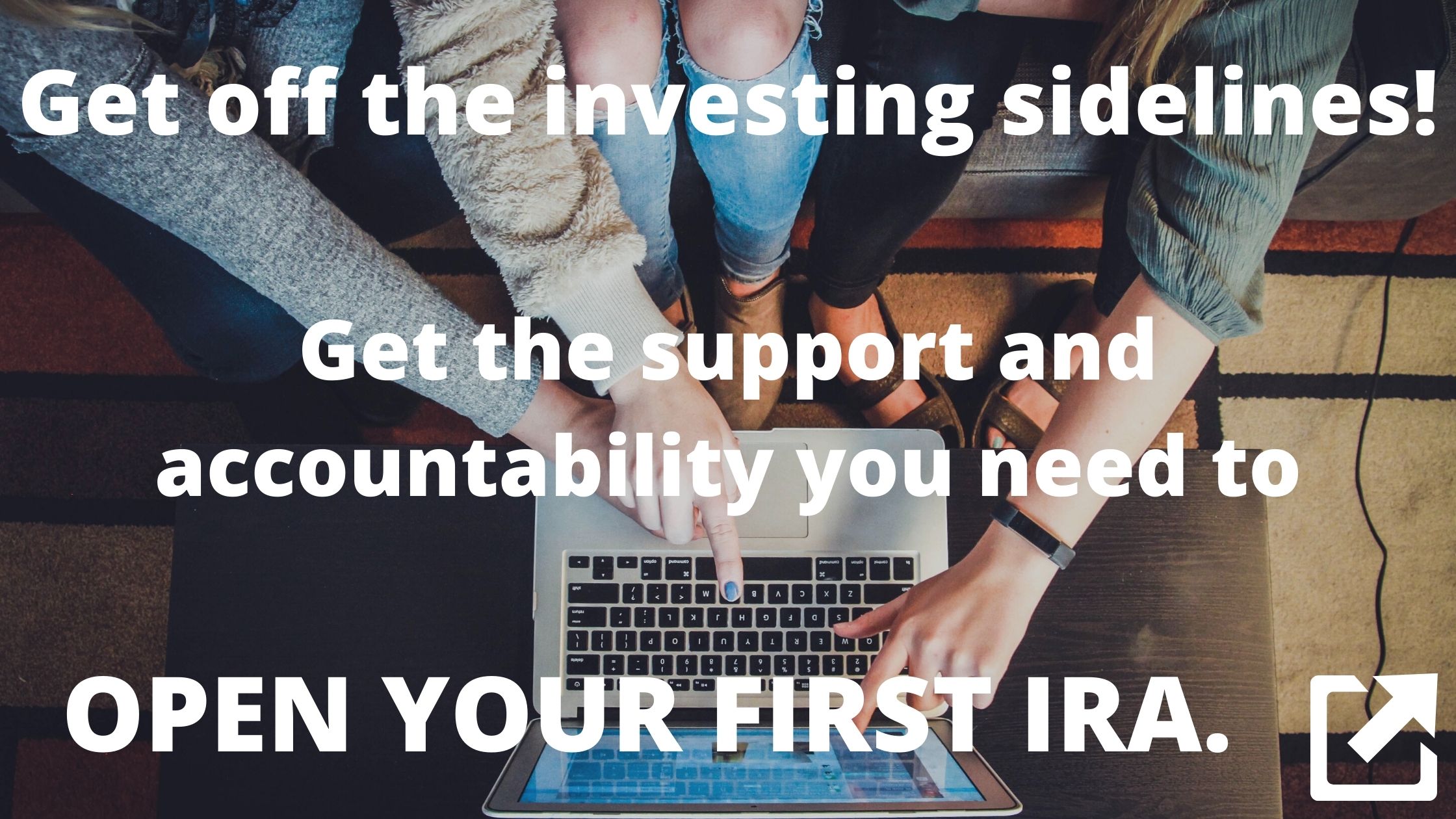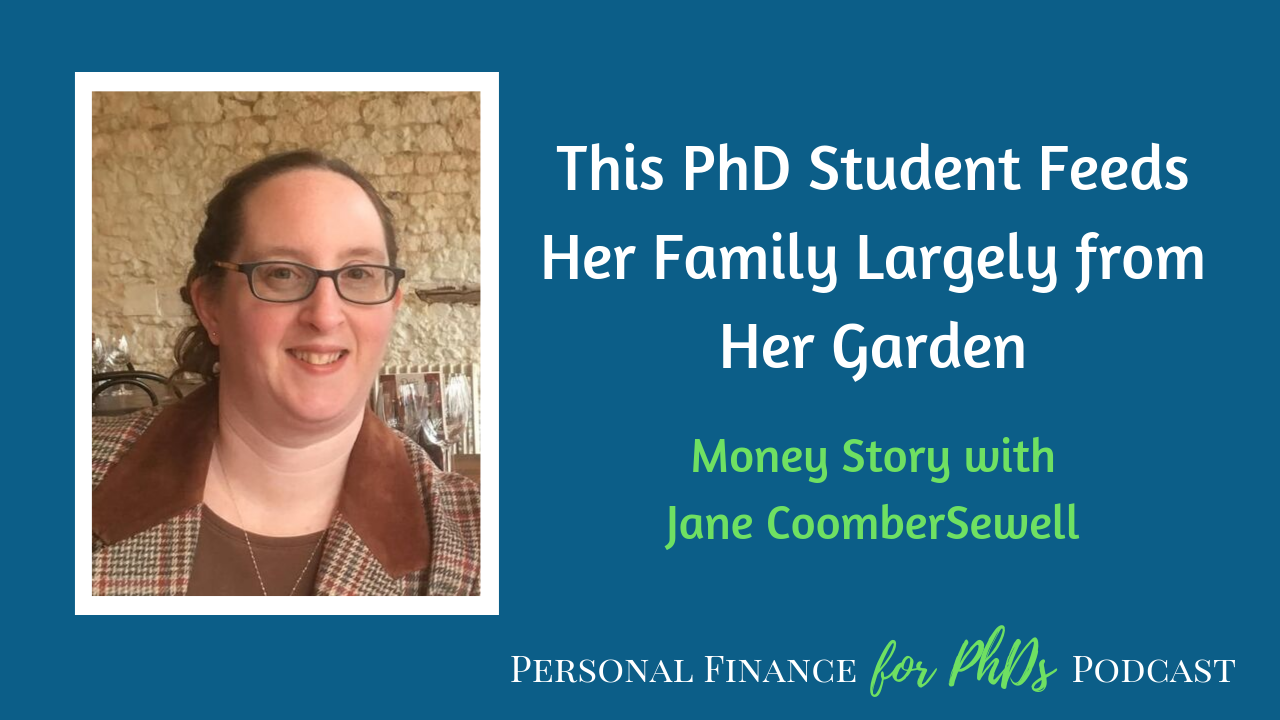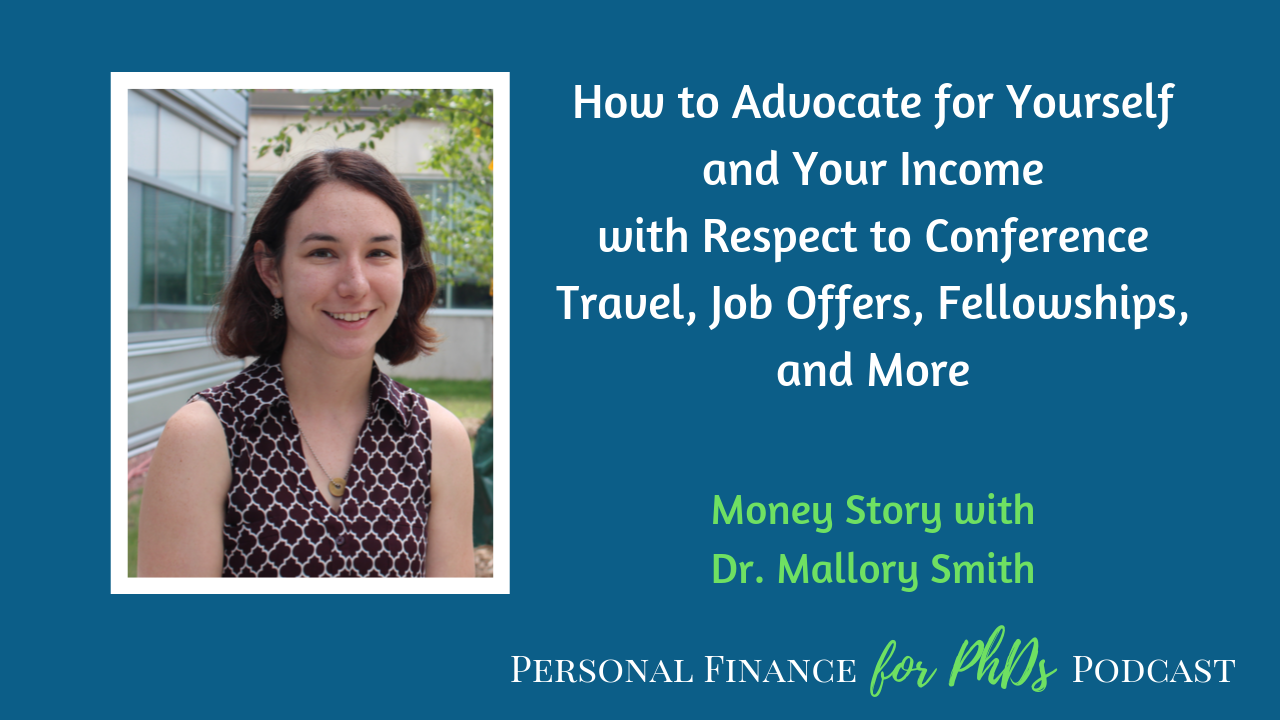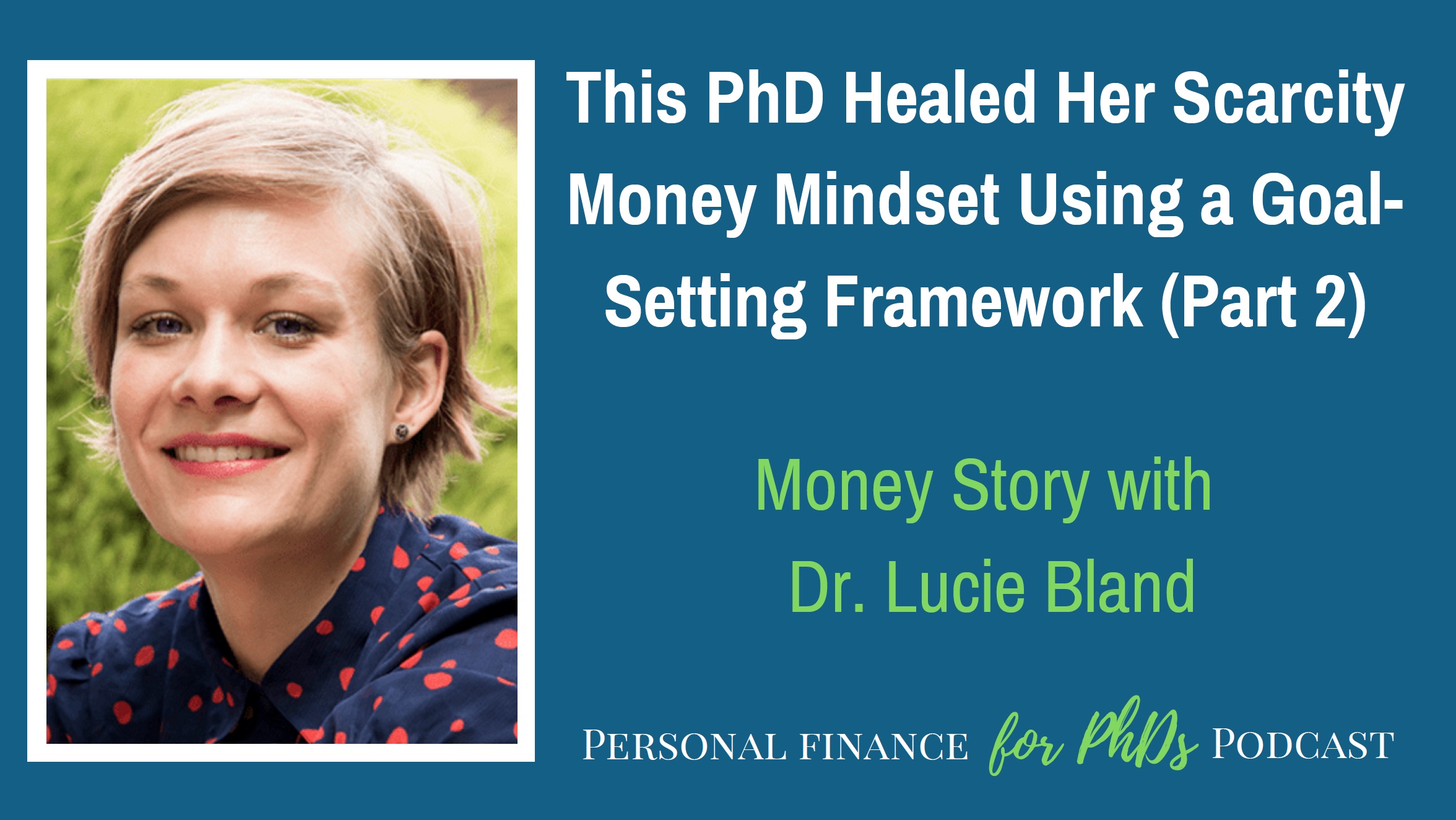In this episode, Emily interviews Hui-chin Chen, a Certified Financial Planner specializing in advising globally mobile professionals through her business, Pavlov Financial Planning. In the interview, Hui-chin answers the questions: Is it permissible for an international student, postdoc, or worker to invest while in the US, and if permissible, is it advisable? Hui-chin and Emily discuss several factors that could impact the answers to these questions: whether the person desires to stay in the US long-term, the type of visa they are on, what type of income they have (W-2 vs. fellowship/training grant), and whether they have access to a tax-advantaged retirement account, such as a 401(k), 403(b), or IRA. Listeners to this episode should come away with clear next steps to further evaluate whether and where to invest while living in the US.
Links Mentioned in This Episode
- Attend an office hours with Hui-Chin on 7/22/2020
- Money Matters for Globetrotters
- Pavlov Financial Planning
- Personal Finance for PhDs: Sign up for personal finance coaching
- Personal Finance for PhDs: Wealthy PhD group program sign-up
- Personal Finance for PhDs: Podcast Hub
- Personal Finance for PhDs: Subscribe to the mailing list
- Find Hui-chin Chen on Twitter

Teaser
00:00 Hui-chin: I would actually recommend the default is think about, well, if I had the extra money I can invest for the long term, I don’t really need the money — why not? So there has to be a really good reason why you don’t do it.
Introduction
00:21 Emily: Welcome to the Personal Finance for PhDs Podcast for higher education in personal finance. I’m your host, Dr. Emily Roberts. This is season 4 episode 17 and today my guest is Hui-chin Chen, a certified financial planner specializing in advising globally mobile professionals through her business, Pavlov Financial Planning. In this interview, Hui-chin answers the questions: Is it permissible for an international student, postdoc, or worker to invest while in the US and if permissible, is it advisable? We discussed several factors that could impact the answers to these questions. One, whether the person desires to stay in the US long-term. Two, the type of visa they’re on, F-1, J-1 or H-1B. Three, what type of income they have, that is W2 versus fellowship or training grant. And four, whether they have access to a tax advantage retirement account such as a 403B, 401k, or IRA. I’ve wanted to help the international graduate students in PhDs in my audience think through these questions and scenarios for a long time and I’m so grateful to Hui-chin for giving us her expertise in this area today. Please consider sharing this episode with your friends and peers. Without further ado, here’s my interview with Hui-chin Chen.
Will You Please Introduce Yourself Further?
01:42 Emily: I am so delighted to have joining me on the podcast today Hui-chin Chen. She is a CFP. Her business is Pavlov Financial Planning. She is an expert in this area of international students, postdocs, workers living in the US and what can we do investment wise? I know this is a question of high, high interest in my audience. I get this question every single seminar I deliver at universities. Can I invest in the us? Should I invest in the US. What kinds of accounts can I use? So Hui-chin is here to help us answer these questions as best we can. It’s a very complicated and detailed area, but you know, we’re going to work through it over the next 30 minutes or so. So Hui-chin, thank you so much for, for joining on the podcast and please tell us more about yourself and your business.
02:29 Hui-chin: Well, thank you for having me Emily and I think you covered like all the high levels. Like you said, I’m a CFP, a certified financial planner and I focus my work on clients and international planning needs, whether they’re immigrants to the US, people who are temporarily working in the US that migh leave or US citizens that become expats. So sort of like your listeners who are technically expats from other countries. So I deal with international complexities day in and day out for my clients, so I’m happy to answer any questions you might pose today.
03:05 Emily: Yeah, I mean I have been searching high and low for an expert, just like you. Will you please mention your blog name, your website name.
03:12 Hui-chin: Yes. You can read more about just in general financial planning topics for global and mobile people on moneymattersforglobetrotters.com and if you want to learn more about my business or working with me, it will be on pavlovfp.com.
03:29 Emily: Great. And you have a YouTube channel as well, right? What’s the name of that?
03:32 Hui-chin: Yes. Well there’s no name because I just record more like a series of different topics. The most recent one I recorded, I call it “Welcome to the USA: personal finance edition”. I think some of you might be interested or your spouses who accompan you to the US while you study or work and they may or may not be able to. So it goes through a lot of the different steps of understanding the US system that will be helpful if you eventually do want to stay in the US.
04:04 Emily: Yeah, perfect. Tell me just a little bit more about yourself — when did you arrive in the US, where are you from, why did you come here and those kinds of things.
04:12 Hui-chin: I first arrived full time in the US in 2004 for my graduate degree in public policy and management. I did consider going into a PhD, but I did not eventually and I basically stayed. Since then, I found a job in the US, I continued my work and then I met my husband in grad school, but after working separately for a few years, decided to get married and he got a job posting overseas in different countries. So I also have a very personal interest in working with people from all over the world because, for example, right now, I’m actually not physically in the US, we’re somewhere else. So.
Investing in the US as an International Student
04:58 Emily: Okay. Yeah. Fascinating. Oh my gosh. I really hope people follow up with you about this. So what we decided to do with this interview was to answer two broad questions, which are the ones that hear during seminars. The first is am I allowed to invest in the U S is this permissible? Secondly, is it advisable for me to invest in the U,S while I live here? Now the second question is a lot thornier than the first, I understand, so we’ll kind of go through a few different, aspects of this question that might affect the first question or the second.
Is it permissible? Yes!
05:33 Hui-chin: All right, so you’ll have to prompt me later for all these different questions. I’m going to answer the easiest one which is whether, as an international student who is not a US citizen or a green card holder, can I invest through a US based account? The answer is yes. And the United States is one of the few countries that’s very friendly to foreign investors investing directly in the stock markets and the US also has one of the largest stock markets. A lot of foreign companies come to list in the U S. dot. Markets. So really, even if you were not in the US, even if you were just like live in your home country and you want to open a US brokerage account, you can actually do it.
06:24 Hui-chin: It’s not only permissible, it’s actually a sometimes recommended way to invest, especially if your home country gives you very little access directly to investing equity on your own. A lot of countries don’t even have what we call retail access, like in the US. In a lot of places you have to invest through insurance contracts or very expensive mutual funds. So investing directly as a retail investor, that means that you’re as an individual, not going through an advisor, just like open your own account and start investing, it’s actually a great opportunity to do so. Now you’re in the US, it’s a lot easier. It’s easier for you to find information like that instead of doing it in your home country and tried to find those kinds of information. So that’s the long answer. But the short answer is it’s definitely permissible to do so. Right now you’re in the US and you can invest no matter what kind of income that you have. We’re talking about just a normal broker brokerage account, so it doesn’t give you any tax advantages. It’s just for somebody who wants to buy some ETFs or even just stocks. For example, if you really like Apple, you want to buy Apple stocks, you’re totally permissible to open a brokerage account online and pressures that Apple stocks with whatever money you have, either from your work in the US, from your grants, from your fellowships, or from your wealthy uncle back home who wired you some money. Those are all possible ways to invest.
Opening a Brokerage Account
08:06 Emily: So I think there may be, you can tell me if this is the case, I think there may be a distinction between something being permissible under the law and being, will I actually find a brokerage firm who will work with me? Because what I hear from international students and scholars is, and I never know if this is the rumor mill or if it’s actually their own experience is, “well it’s difficult to find a brokerage firm to approach who will work with me.” Is that the case? Is it, I can walk up to any brokerage firm and you know, as an international student or scholar or worker and open whatever. Or is it like, Oh well some of them might, by policy, be excluding certain types of people from you know, opening accounts.
08:51 Hui-chin: That’s a good question. Sort of at the practically, how does that work? So the first scenario is that if you have, for example, if you actually pay social security, now you have a social security number and you’re technically getting your income and you’re an employee of your university, then, for example, if you go onto Vanguard, that’s all the information they ask for. So at Vanguard, if you provide those two types of information, you will be able to open the account and plus you have a US address because you’re currently living in the US, so you actually do not need to already be a green card holder or something in order to have it processed through it. It doesn’t mean that if you eventually decide to leave the U S and if Vanguard finds out, they will want to close the account. So that’s one scenario.
09:43 Hui-chin: The other scenario is that I know some people because their totalization agreements, they don’t even have a social security number or they choose not to have one in the US and so in that case, even though you’re physically in the US and you have a US address through your apartment or on campus, it’s basically you’re considered a foreign, like how you file taxes as a nonresident alien, you can be a foreigner. So in that case, if you still have pretty close ties with your home country and you do decide to go back, you can actually open an account like your just a person living overseas, but in that case it is pretty much dependent on the brokerage company being willing to work with you because every brokerage company, like Schwab or Fidelity or TD Ameritrade, it’ll have their own internal list of which countries residents they were willing to do business with. So you’re basically declaring to them, I am a resident of some other country, would you would do business with me? And then they may or may not. So that’s another way to go about it.
10:59 Emily: Got it. So, okay, an international student or scholar who does not have an SSN, when they actually try to go and open a taxable brokerage account, what should they say to customer service? I’m a resident of X country, but I’m living in the US currently, will you work with me? Is that the question that they need to pose?
11:22 Hui-chin: Yeah, the question will really be, I’m a resident of another country, because if that’s the case, you’re providing an address of that country. You may be able to provide a us mailing address, but that’s not the address that’s associate with the account. So if they know that you are foreign customer, they will have different tax reporting, different tax withholding. Instead of filling out a W9, you fill out W8-BEN, all the different things, so it’s whether you want to be considered as a foreigner to the US institution or somebody who’s a US resident.
12:01 Emily: Got it. So in the case where someone does have an SSN, probably because they’ve been employed W2 employee for at least part of the time that they’re here, would you say that it’s totally fine to then present yourself as a US person? Even if you’re still technically a non resident alien for tax purposes, even though you have the SSN, but let’s say you’re a nonresident alien for tax purposes, is it okay to go ahead and use that SSN and be like, I’m a US person?
12:26 Hui-chin: Well, that’s the tricky part because you are still for tax purpose, like your dividend capital gains interest will be taxed differently. So you do need to report, you need to write a W8-BEN instead of W9. So I would just give an example on how easy it is to actually open an account. For example, on TD Ameritrade’s website they actually ask what kind of visa you have. So I’m just saying that usually in those kinds of applications, if you have a SSN, you have a US address, you have a US employer, it’s most likely those online retail brokerage account, they will allow you to open the account. But you also need to make sure that they know that for tax purposes you need to fill out a tax form as a non resident alien.
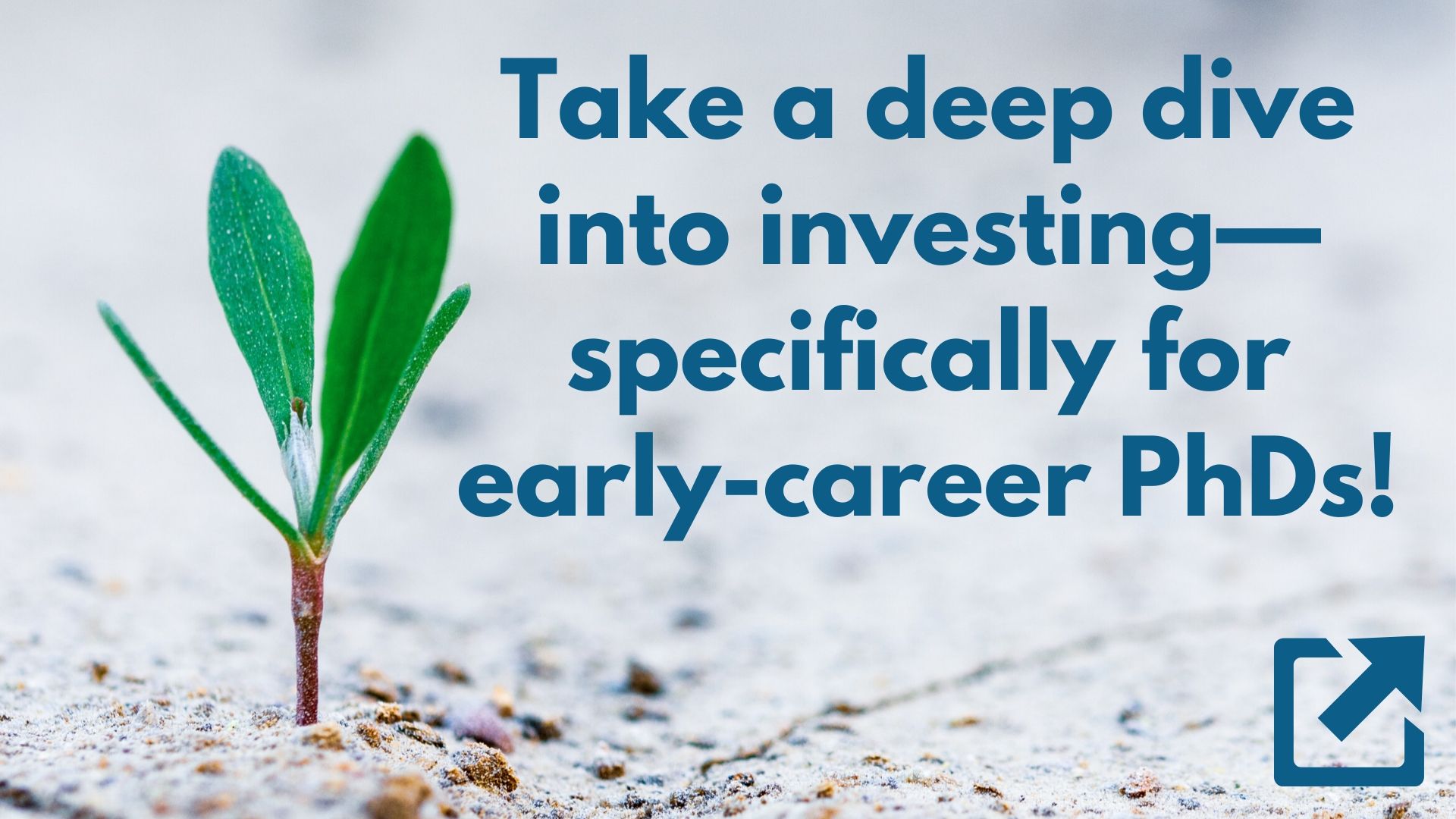
Investing during Short-term vs. Long-term Stays in the US
13:17 Emily: Got it. Okay. I think that’s very clear now. Than you so much for going through that in detail. Okay. So then let’s go back to the scenario of “I plan to stay in the US long term, or hope to, not sure if it’s gonna work out” versus “I don’t plan to stay in the US long term”. We now know what’s permissible, but then what is advisable? Should a person who hopes to stay in the US long-term, has the ability to invest right now — is there any reason for them to shy away from doing that because they’re not sure about the longterm status? Let’s start with that question.
13:50 Hui-chin: So like I mentioned, I guess, eluded to earlier, because the US is such an attractive market, not in terms of return or performance, but in terms of access, you can invest in a broad index in so many different countries, so many different companies with such little cost, and it’s really hard to beat if you tried to do it in some other country. Usually there’s more brokerage fees more commission, there are more hurdles to jump through as an individual investor. So I would actually recommend the default is think about well if I have the extra money I can invest for the long term, I don’t really need the money — why not? So there has to be a really good reason why you don’t do it upon the US perspective.
14:38 Emily: Got it. And so maybe that person in that situation is thinking, “well, is it a good reason that I might eventually leave?” How would the investments that are in the US for the moment, do they to exit the country with that person? If the person ends up leaving, how does that work and how’s that handled?
14:57 Hui-chin: Yeah. So as I mentioned earlier, even for somebody who’s never been to the US, some custodians will be willing to open account for a foreign customer. So if you’re thinking about, “Oh, I’m just leaving after I finished my grad degree in three years,” if the country you’re likely going to is on whatever list that custodian posts, like it’s European EU country or it’s a relatively developed country or it’s a safe country, it’s not like a terrorist country that may be on the treasury list of “do not do business with”, then you’re probably safe to assume that you can continue to hold the account. But of course do your own research on the specific countries. It’s impossible for me to go into every single country.
15:46 Emily: We’ll link to a reference if you can provide a reference of that treasury list. We’ll put that in the show notes and check to see if your country appears on this list, in that case, okay, we need to tread more carefully. But let’s say, okay the country is not on that list, go ahead.
16:04 Hui-chin: Yeah, so basically what will happen is that for example, if you went the first route when we’re talking about opening an account, you open account with the U S address and everything, and let’s say you actually end up staying over five years or you actually got a job at under H-1B then leave, right? So you actually went from nonresident alien for tax purpose to a US person tax role, and then you’re leaving, so you’re going back to a non resident alien textual. So you do need to report to the custodian that you’re leaving this is my W8-BEN, this my new address. So of course you want to make sure the custodian does business with people at that address. And there is some other complexity in terms of what you can invest in. Some people from the EU countries might know there are some new regulations saying that the custodian is not supposed to sell ETFs that’s not registered in the EU to their residents. So that’s one type of complexity that may come up that whatever you invested in, you may or may not be able to add more to it once you leave. But whatever you have already invested in, there shouldn’t be any issue with keeping it there, as long as the custodian is willing to keep you as a customer.
17:30 Emily: Got it. So let’s say then that the custodian is not willing to keep you as a customer, for whatever reason. What happens in that scenario?
17:39 Hui-chin: It does happen. Over the last 5 to 10 years, even some US citizens are experiencing that, living overseas, it used to be okay that custodians know that they live overseas and now they’re not okay and custodians say please close your account. For normal brokerage account, of course the first step was if you want to keep your investment in the US, you can always find a different custodian to move your investment to. You actually do not need to sell those investments. You can do a transfer. It’s just whoever’s holding those stocks will transfer the certificate electronically to another custodian. It’s not like you’re selling and getting the money back. But if because where you’re going next or because of personal reasons, after investing in the US for five years, you’re willing to take the money and leave, you can go ahead and sell your investments, close the account, taking the money and leave. There’s no problem with that. There’s also some tax considerations there. For people who are considered a nonresident alien, getting capital gains while they stay in the US for over 183 days versus they do not. Because if, for example, if there is a tax year when you have a US based account and you have a lot of capital gains on your Apple stock because it increases in value a lot, but if you already finish your study and you’ve moved back to your country for two years you’re just wondering, well, will I be taxed on the capital gains? The question is, you actually do not get taxed on the capital gains, in the US. There could be also tax treaties that differs between the US and your country, but in general, the rule is the US does not tax and your country may or may not tax that. So that’s actually a good–
19:34 Emily: It sounds like in that situation, where you’re planning on moving the money out of the US, it sounds like that’s the time to consult a tax advisor in the country that you’ve moved to, right? How to execute this, when to execute this and the tax implications. Is that right?
19:51 Hui-chin: Yeah. So you’re definitely thinking about tax strategy, because, as opposed to the situation I talked about, if you sell the day you leave the U S for example, like “I’m just closing everything down, I’m moving back home.” And if you sell the stocks as somebody who has lived in US, even though you’re a nonresident alien but you were in the US as a tax home, when you sell the stocks, the capital gain is actually taxed at 30%, unless their treaty dictates differently as well. Like you said. So definitely talk to your tax advisor in your home country, as well to understand how the tax coordination works.
Taxable vs. Tax-Advantaged Accounts
20:33 Emily: Got it. And now, you mentioned earlier that all of that was for a taxable brokerage account. So let’s also throw in the scenario that the person has been using a tax advantaged retirement account — IRA, 401k, 403B — and they’re not going to leave it in the US, they’re are going to be moving the money out, what are the tax implications of making a withdrawal from whichever account type.
20:56 Hui-chin: Yeah, in that scenario, basically first of all, you should know that there is a penalty that applies if you take money out of and IRA, 401K, 403B. You should have known it before you put money in, but that’s the same rule that applies broadly to everyone, whether you’re a US person or not. Right? Because the reason is that the government gave you a tax benefit and it’s the incentive for you to keep the money there for retirement. They don’t want you to take the money out. So, if you need the money obviously and you think closing the account, paying the penalty and income taxes is still better going back home and doing it in a few years because of the different tax situation, of course that’s something you can consider. But knowing, with a penalty if you are not not going to need the money and it is eventually going to pay for retirement, one thing you also can consider is to leave the account open for a very long time and let it grow. Of course, you cannot keep putting money into it, but whatever is in there can continue to grow and you can consider taking the money when your income is lower and take the penalty, so the income and the penalty together is less of a hit, or you can take it out when you are 59 and a half, which is the current law of when you can take it out and then there won’t be a penalty but there is going to be taxes in the US and withholding as well.
22:42 Emily: It sounds to me, and this may be painting with too broad of a brush, but it sounds to me like you know, if you end up having investments in the US, if you’re eligible to keep them in the US, and you do leave, sounds like it’s a good idea to keep the accounts open. You won’t be contributing anymore, at least to the tax advantage ones, but it doesn’t sound like there’s a big reason to be closing accounts and moving the money out, unless it is that you are not permitted to keep the accounts open based on the custodian and the rules of the country that you’re going to, and how they deal with the US, is that right? It sounds to me like that’s the pattern. Like go ahead and keep the money here and then when you’re of retirement age in the country that you’re residing and then you can work on doing the withdrawals and dealing with taxes at that time. Is that kind of broadly what you recommend?
23:32 Hui-chin: I think that’s generally correct. Like I said, the main reason for that is because the US is such a individual investor friendly country to allow you to invest that way, so like I said, I would ask the question of why not. Of course everybody’s situation is different. If there is a legit reason that you think that you shouldn’t be keeping the investment in US, of course, you just need to understand the tax implications. Otherwise, keeping investing long-term in the US, not just — let me clarify this, not investing in US companies only, but using a US based account and custodian, who charges you basically right now no commission to buy and sell anything and with very low mutual fund costs, very low ETF costs, it’s a really good bargain compared to the other alternatives.
24:34 Emily: Yeah. So it sounds like whether an individual in the US, not on a green card yet, not sure if they’re gonna be able to stay long-term or planning to not stay long-term, if they have the ability to invest at the time that they’re living in the US, as you said, why not? Why not go ahead and open the taxable brokerage account or the IRA or the 401k or whatever it is and use it, because it’s sort of, as we know — we don’t have to go into about the power of compound interest — starting to invest earlier is fantastic. So basically don’t a waste or fritter away the time that you may be in the US, it might be longer than you expect. Go ahead and start investing and then deal with either moving the money out or keeping here or whatever later, once you know where exactly are you going to be living. I like that approach of why not. So whether the intention is to stay in the US long-term or to not, go ahead and use the time while you’re here. Use your access. Go ahead and open the accounts, again if you’re able to be able to invest.
Free 10,000-Word Email Course on Investing for Early-Career PhDs

Subscribe to our mailing list to receive the 6-day email course designed for graduate students, postdocs, and PhDs in their first Real Jobs.
Commercial
25:37 Emily: Emily here for a brief interlude. As a listener of this podcast, every week you hear strategies that another PhD has used to improve their financial picture. But listening and learning does not automatically translate into action in your own financial life. If you are ready to change how you think about and handle your money, but need some help getting started, I can be of service. There are two main ways you can work with me to create and implement a financial plan tailored for you. First, I offer one-on-one financial coaching, either as a single session or a series, as you make changes over the long term. You can find out more at PFforPhDs.com/coaching. Second, I offer a group program called The Wealthy PhD that is part coaching, part course, and part community. You can find out more and join the wait list for the next time I open the program at PFforPhDs.com/wealthyPhD. I believe it’s possible to succeed with your finances at every stage of PhD training and throughout your career. Let’s figure out together how to make that happen for you. Now, back to the interview.
Investing Under Different Visas
26:52 Emily: Okay. That was the first scenario to talk about. And then the second one was about visa types. So F-1, J-1 and H-1B. You’ve already said broadly it is permissible, but is it advisable? Are there any differences among people holding each one of those different visas that they should be thinking about? Or is it like, “no, the general consensus of it’s permissible, why not?” still applies no matter what visa type?
27:17 Hui-chin: I think that it’s not really only based on visa type, but the idea of combination of visa type, how long are you staying in the US — as, you know, F1 can turn from NRA to US person, J-1 as well, with different time frames. I would think about it as just, it’s very similar to what we were talking about before, like longterm or short term. Eventually, the main difference is tax treatment of if you’re staying, if you’re becoming a us person long-term, or even becoming a US citizen and we’re just going to pay US taxes forever versus at some point, in the future, it’s possible you will sever tax ties with the US, other than whatever investment you kept in the US. So overall investing in both scenarios are great. You just need to know the tax implication and the tax strategies, because if you’re switching from one to the other, there may be some opportunities for you to reduce taxes. And if you don’t think about it clearly or get the correct advice, you might find out, well I could have been taxed zero but now I’m getting taxed 30%.
28:28 Emily: Got it. So it’s not so much about the particular visa type, but rather at what point it flips to you being a resident alien for tax purposes, which is different on the different visa types. Okay, great! Quick one there.

Investing for Different Income Types
28:41 Emily: Third point that I wanted to talk about was the income type. So having W2 type income, or even self-employment type income, if that’s permissible, versus having this weird fellowship, training grant, non W2 type of income. This is very common for graduate students and also for postdocs. And so the general rule that certainly applies for US citizens and residents is if you have the W2 type of income that is taxable compensation for the purposes of contributing to an IRA. So let’s say in the scenario where the person does not have access to a workplace-based retirement account, they’re looking at can I open an IRA or not? Taxable compensation would be the W2 type of income. They can open an IRA and use that income towards it. If you go an entire calendar year and don’t have the W2 type of income, not taxable compensation, it’s all fellowship or training grant, and of course for international students, scholars, they’re not permitted to side hustle, they can’t have the second jobs and so forth, so there would be no possibility of having taxable compensation type of income. I guess the question is, whether they had access to an IRA or not, does it change the, we know it’s permissible, but does it change the advisable recommendation on whether to be investing at this time or not, knowing that in the one case with fellowship and training grant type income they wouldn’t be able to use an IRA but could be using a taxable brokerage account as we discussed earlier.
30:09 Hui-chin: I think that’s actually something we can just combine with the fourth one, so the tax-advantaged one. Like you said, eventually the main question is whether I have taxable compensation or I do not have taxable compensation.
30:23 Emily: Now, I want to jump in just to note that we’re recording this in November 2019 so the SECURE Act has not passed the Senate, yet. I am certainly hopeful that it will because what it does is it changes the definition of taxable compensation to include fellowship and training grant type of income, non-W2 income for graduate students and postdocs. So maybe when you’re listening to this, that law would have changed, and so certainly keep that in mind that we’re discussing this as what is the definition of taxable compensation. Basically, right now it does not include fellowship and training grant and come perhaps in the future it will, but right now it doesn’t. Okay, go ahead.
31:02 Hui-chin: I think at the very beginning you mentioned the whole connection to your personal service, right? So the idea of you can contribute to areas that you need to have taxable compensation and that’s related to the idea of it’s not just that it’s taxable, but it is a compensation for performing a service. If we’re just really thinking about why we’re using IRA, it is for the tax advantages. So even before you think about that, it’s like what would be the tax consequences or how much you save by using that kind of account and is that really helpful in your situation? I know, one question, you posed before is well, everybody wants a Roth IRA because they’re like, well, I’ll never get taxed in the future. I want to be able to contribute to that.” But a Roth IRA and traditional IRA have the same rule: the compensation needs to be taxable. So if it’s already not taxable, the government wouldn’t allow you to put money into something that’s never been taxed before. The Roth IRA is for the government to tax you up front, so it doesn’t tax you it in the future when you take it out.
32:26 Emily: Okay, let me, I just want to clarify this. This is a little bit new information to me. So when we have the two words, taxable and compensation, you have to have taxable compensation to contribute to an IRA. The compensation part of it is this, is it non-W2, fellowship and training grant type income? Okay, that’s not compensation. But now we’re also talking about the “taxable”, the first word there in taxable compensation. Your income has to be taxable in the US in the first place to be eligible to be contributed to an IRA. So maybe under certain tax treaties, your income for a time is not taxable in the US, that income would not be eligible to be contributed to an IRA. Correct?
33:05 Hui-chin: Yes.
33:06 Emily: Okay, great. Go ahead.
33:07 Hui-chin: Yeah, and the second one, we use compensation, but on the US-person side it’s called earned income. So if you look at IRS publications it’s always referred to earned income for US person related publications on contributing to IRA. Those two are equally important. It has to be earned income, so your compensation from service, and it’s taxable. The idea is that you will know whether you have that kind of income or not and if you have that income, meaning you’re getting tax in current year, so you’re thinking about, “Oh, if I contribute to an IRA or 401K, or 403B, I get taxed less. Or you contribute to it and now we get taxed, but in the future it won’t get taxed, which is the Roth side. In the first one, just the pretax contribution, it makes sense if you’re really high income. I think for the students, because if you’re on a 1040-NR, depending on the level of your compensation, because you may not have standard deduction, you may only have itemized deduction, some people can be at the zero percent, some people can be twelve percent or above, so you have to look at your tax situation of which bracket you’re going to be in to give you an idea of, well, maybe I want to do pretax instead. And the second one is, okay, so if I’m at a really low bracket, how about I just do Roths, but then the idea is you want the tax benefit in the future, right? But if you are going to move away from the US, how much more is that tax benefit versus simply using a taxable brokerage account, if you don’t get current year tax benefits. So those are the analysis that you need to go through, in terms of whether or not to use a tax advantage account, if you have the income type to do so.
35:20 Emily: Okay. Yeah. Let me see if I can summarize that. If you don’t have taxable compensation, can’t use a tax advantage account anyway, so go through the brokerage firm and go for the taxable brokerage account, if you’re able to use it, if you can set up that kind of cap. Okay. On the other side, we have eligibility for the 401K, the 403B, the IRA. If you want the tax deduction today for contributing to a traditional version of each of those accounts, great. Go ahead and take it and get a tax deduction today. Awesome. The money grows tax deferred, you’ll deal with the taxes in retirement or whenever you move the money out or whatever. For the Roth option, because of any of those kinds of accounts, because you don’t have the immediate tax advantage today, you really have to be asking yourself, does it make sense to put my money into a Roth IRA, no immediate tax advantage, but it will grow income tax free and then I can withdraw it income tax free in retirement versus can I just use a taxable brokerage firm, which is more flexible. And I think maybe the answer to that question, of course it will depend on the math in any individual’s scenario, but might come down to, again, what we talked about earlier, the expectation of staying in the US long-term or the hope, because really over the long, long term it is very advantageous to be using an IRA of any kind, Roth or traditional. But maybe if the time that you see yourself being in the US is on the shorter side, not to retirement or only five years or the length of your degree, then maybe it’s like, well why bother with the whole Roth IRA scenario? Let’s just go for the taxable brokerage account because if you are expecting to move the money out, for example, it’s kind of more of a pain to do so with a Roth IRA, because while you can withdraw your contributions, whatever gains have been in the account, if you try to withdraw those, then then the penalty comes into play. Is that correct?
37:12 Hui-chin: Yeah. And one big difference for people who eventually just move away from US and no ties in the US, I think I mentioned that before, you could qualify for 0% capital gains tax rate if you sell it, so it’s almost like the same, but the only difference is the dividend. So dividends are taxed at a flat 30% if your a NRA living outside of the US, but over the long term, if you’re investing in, for example tech companies, they don’t pay dividends anyway, and your main goal is for that capital gain growth for the next 30 years, then investing in Roth and investing in a taxable brokerage as an NRA living somewhere else is the same.
37:53 Emily: Gotcha.
37:53 Hui-chin: Why give yourself more ties to a Roth type account you can’t access and there’s more complexity.
38:01 Emily: I see. So really your investing strategy might change based on the tax treatment, if you’re no longer living in the US, of capital gains versus dividends. I actually do want to also add in for people who, I think this is still the case under post-tax custom jobs act, people who are the 12% marginal tax bracket or less, they have 0% federal tax on long-term capital gains and qualified dividends. So if you have a very tax efficient strategy, if you’re buying and holding, generally, as long as you stay in those lower tax brackets, you’re really going to see much or any income tax anyway. So why bother with the IRA, when you could be using a taxable account and not really having that much in the way of actual tax burden. Is that correct?
38:47 Hui-chin: Yeah. And just going back to definitely understand the tax treaty if you already know where you’re going to. Of course, most of the time you might think, well I’m just moving back to my home country, but then you get a job somewhere else and then you know, your life is not really as predictable, but at least understand the tax treaty between us and your home country, if you think it’s very likely you might end up there at retirement age when there would be IRA, 401k distribution consequences and compare that to, if I simply use a taxable brokerage, how does that change my dual country tax liability.
39:31 Emily: Got it. I think what I’m hearing mostly from this interview and the point that you just made about life being sort of unpredictable is, okay, here’s what you know. You know you’re in the U S right now. You have to be in the US for a few years, several years, maybe longer. Deal with what you know about right now, make the best decision you can for right now, and then if the situation changes later, you have to pivot. It’s possible to pivot. You’re not going to be losing your investments just because you’re leaving the country or whatever. It’s something that you can move with you, so you can adapt and change depending on, you know, the next step that you take. And hey, if you end up, if you do end up living in the US long-term, like until retirement age, it will be awesome if you started investing earlier and had started using an IRA or a 403B or a 401K earlier, as soon as you have access. Is that fair?
40:22 Hui-chin: Yeah. And I think those more specific questions and people questioning whether they should have account here. I think in my experience, I really mostly hear it from people from EU countries, Australia, Canada, because they feel like they have the same access when they move back. They don’t want the complexity of dealing with cross border things. And I totally understand that. And if you have good access to invest when you go back home, of course. But I think, what I know is being from a developing country myself is that most of the people who come to US see it as an opportunity and if you can have an investment in the US and don’t have to deal with turmoil that may be happening in your home country, most people jump on the opportunity. I don’t know that many people would say it’s a bad idea to open an account in the US.
Free 10,000-Word Email Course on Investing for Early-Career PhDs

Subscribe to our mailing list to receive the 6-day email course designed for graduate students, postdocs, and PhDs in their first Real Jobs.
Where to Find More Information
41:26 Emily: Got it. I think we’ll leave it there. This has been fantastic. Thank you so much for joining me. Tell us again where people, can find you — your website, your business name and so forth.
41:35 Hui-chin: Yeah, sure. If you want to read more about what I just talked about, and this also how Emily found me, is on moneymattersforglobetrotters.com. It’s just a blog for reading. And if you’re interested in working with me, you can go directly to pavlovfp.com. That’s Pavlov Financial Planning.
41:54 Emily: Thank you so much for joining me today Hui-chin.
41:57 Hui-chin: You’re welcome.
41:58 Emily: Listeners, thank you for joining me for this episode. PFforPphDs.com/podcast is the hub for the Personal Finance for PhDs podcast. There, you can find links to all the episode show notes and a form to volunteer to be interviewed. I’d love for you to check it out and get more involved. If you’ve been enjoying the podcast, here are four ways you can help it grow. One, subscribe to the podcast and rate and review it on Apple podcast, Stitcher, or whatever platform you use. Two, share an episode you found particularly valuable on social media or with your PhD peers. Three, recommend me as a speaker to your university or association. My seminars covered the personal finance topics PhDs are most interested in, like investing, debt repayment, and taxes. Four, subscribe to my mailing list at PFforPhDs.com/subscribe. Through that list, you’ll keep up with all the new content and special opportunities for Personal Finance for PhDs. See you in the next episode, and remember, you don’t have to have a PhD to succeed with personal finance, but it helps. The music is Stages of Awakening by Poddington Bear from the Free Music Archive and is shared under CC by NC. Podcast editing and show notes creation by Lourdes Bobbio.

